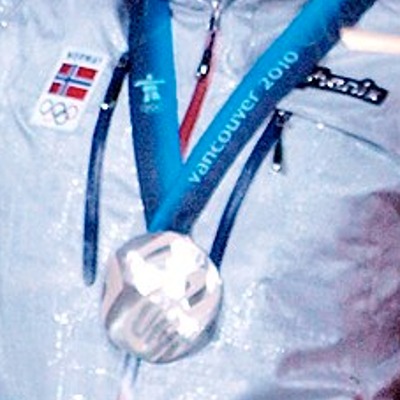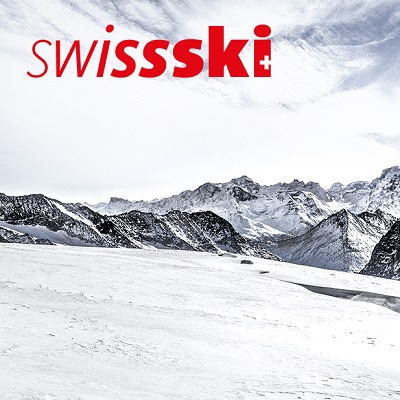FIS Q&A With Dave Ryding

The British slalom skier Dave Ryding went from the dry slopes all the way to having a shot a writting Great Britain's history on the alpine World Cup Tour. Here is what he has to say to FIS on his incredible career:
Let’s start from the beginning, when you started skiing on dry slopes in Great Britain. How did dry slope racing prepare you for your career on the World Cup?
Apart from it being quite a bit different from snow, racing is still racing. I learned an incredible amount on how best to prepare for a race, how to handle pressure between runs, how to tune skis, and the list goes on on the mental side of things. OK, it’s not the World Cup setting but you learn an awful lot as you are growing up on how to handle yourself and what works for you.
What was the transition like for you moving from dry slope to snow surfaces in training and competition?
It’s a big transition, and I had to give myself the time... there are a million more variables to learn on snow and the courses are definitely longer than the 12-second dry slope sprints! Also, the athletes from snow nations are on the snow by the time they turn three years old, so I knew I’d have a lot to catch up. It’s a disadvantage, but I would never have ski raced if it wasn’t for my local dry slope.
By the time you became the first British skier to win the European Cup slalom time in 2013, I think it’s safe to say you had caught up. How were those first few against the top competitors?
Yes, winning the Europa Cup slalom title was a very proud moment, an achievement that I still value as one of my highest. That circuit is incredibly competitive and was a real learning ground for me. Actually, the year after I won the Europa Cup I didn’t score any World Cup points and that was a real turning point for me. I agreed with my coach that I wasn’t technically good enough to compete on the harder World Cup pistes and the harder snow conditions to match the guys in the top 30. We changed that, and then I was able to start progressing again. As for the competitors, well you wouldn’t expect anything less – the whole top 30 are masters of what they do. We have, in my opinion, the greatest skier of all time to race against. It’s incredibly tough, but at the same time everyone is a gentleman on the slope and I think this is one of the greatest things about our sport!
You are now established among the very best slalom skiers of the world. Some even say that you have the “cleanest turn on the tour.” How would you rate your technical skills compared to the other athletes?
Firstly, everyone has [his or her] own unique technique. I could never master somebody else’s turn. But I have focused on my weaknesses and tried to better them. I won’t lie, it is very nice to hear people compliment what I do. I admire my fellow racers’ techniques too, and they do other things better than I do. But I am happy to be labeled as the cleanest skier – it’s something I have focused a lot on. But now I need to find the speed that 13 guys have more of than me.
The highlight of your career so far was definitely your second place in Kitzbuehel in 2017, when you nearly beat Marcel Hirscher in his own backyard. What was different for you on that day?
It was a crazy day. Before the race I had zero expectations. I slept awful, maybe only three or four hours of sleep, and I had never finished a race in Kitzbuehel before! During the race, I was amazed to be leading and remember thinking, “Wow, I’m in at the deep end here,” but to be honest I still just wanted to finish that piste in both runs for once. After the race it was insane! It was a whirlwind with the media. I turned up at the press conference waiting area still in my boots one hour and a half after the race to see Marcel and Alex just chilling. I was in above my head, that’s for sure. But it was incredible! From that day on, I was recognized in Austria which was very nice.
You’ve been quite close to becoming the first British skier to win a World Cup race in any discipline a few times in recent seasons. Is this one of your big goals, and does that add more motivation or more pressure to your races?
Yeah, for sure it’s on my mind. Like you say, I’m getting closer. Only time will tell if I can achieve it. I wouldn’t say it adds more motivation or pressure to the races, but it certainly adds motivation to training. Expectations in the UK are definitely growing. Top 10s are still greeted with a lot of kind messages – anything else is like tumbleweed!
This winter, the World Championships will take place in Åre. You haven't had the best of luck at big events so far. Are you still excited to participate in your sixth World Ski Championships?
I wouldn’t call it unlucky, I simply haven’t been good enough until the last two seasons to challenge. Now with an 11th in St. Moritz and ninth at the Olympics, I have the platform to build on in Åre! Of course I will be excited, like I say it will only be my second World Championships where I’m really in the thick of the action.
The summer preparation is a big part of life for a professional skier. Do you appreciate that time of the year? What have you been focusing on this summer?
I have grown to love the summer. I always take some time away on a beach with my girlfriend before clicking back into training mode. This summer is no different for me in terms of my focus on snow, I am however trying to improve my whole package of being a ski racer!













